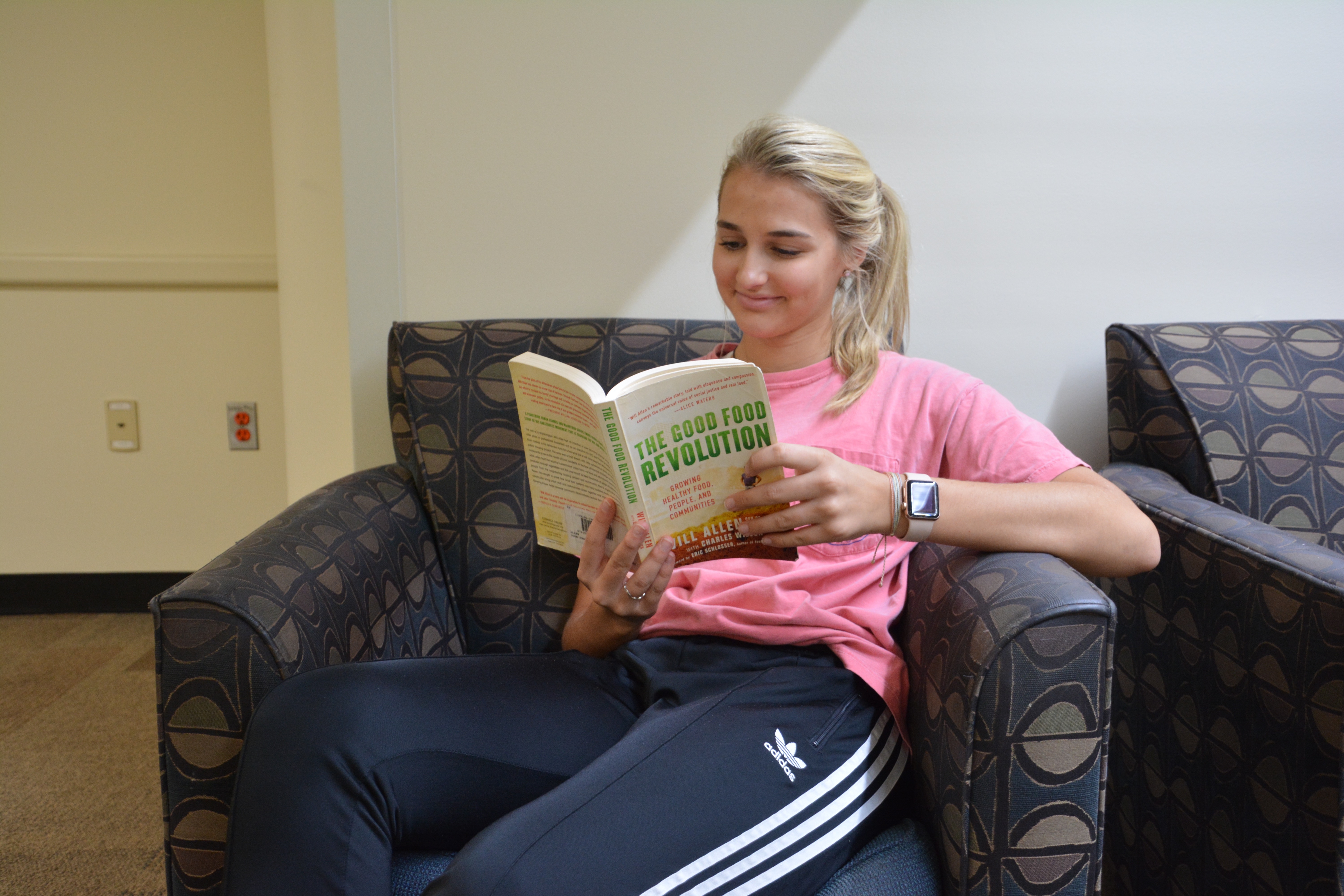Beginning in the 2000-2001 Academic Year, the Reading in Common program has provided 19 classes of Gusties with books of high literary quality and interdisciplinary significance.
As part of the tradition, the Reading in Common books deal with themes connected directly to the Nobel Conference theme.
This year’s Reading in Common book is The Good Food Revolution…Growing Healthy Food, People, and Communities by Will Allen and Charles Wilson. Co-written by Allen, 2018 MacArthur Genius Award Winner, the book has drawn nation-wide attention to the relationships between soil, food, and community.
The Good Food Revolution elaborates the importance of soil quality, both literally and metaphorically, in Allen’s quest to transform a food desert outside Milwaukee’s largest public housing project into a fertile and preserved land with accessible healthy food.
This focus relates to the topic of the 2018 Nobel Conference, Living Soil: A Universe Underfoot.
This book also highlights questions of access and equity to food and economic resources. It considers America’s complex racial history, drawing connections between changes in food and culture and explores the disconnection of urban communities from their rural roots.
The Good Food Revolution also explores the concept of social entrepreneurship, how business can promote social good.
All first-year students and Gustie Greeters read the book over the summer and discuss it during orientation as well as in the First Term Seminars classes (FTS).
The book has been incorporated into First Term Seminar classes as a one of their main texts, a reference for class discussion, critical thinking, and argumentative writing.
According to Physics and Environmental Studies Professor Charles Niederriter, he has been using The Good Food Revolution as part of the First Term Seminar he is teaching – Renewable Energy.
Dr. Niederriter has used examples from the book to demonstrate how a writer calls for readers’ attention while developing and maintaining their arguments.
In addition to referencing the Reading in Common book as a writing model, Dr. Niederriter also connects Allen’s work to sustainability, the theme of his First term Seminar.
“Professor Niederriter and his Renewable Energy FTS have talked about some of the operations that [Allen] does, about how well [Allen] incorporated the use of red worms into compost and how that is more sustainable than adding chemicals,” Professor Niederriter said.
What Dr. Niederriter expects his first-year students to learn from the book is that “there are different ways to things than just highly mechanizing the agriculture that we do in the United States.”
From a student’s perspective, First-year Emily Monicken shares that the book has “opened her eyes” because it has shed light on the importance of soil to human life and food production, which she first learned about through the Reading in Common.
According to the first-year, she also has the opportunity of discussing the book in her Gender, Women, and Sexuality Studies Class with Dr. Harper.
The course has discussed the importance of soil in Native American communities, like how they planted multiple crops at the same time to retain their nutrients.
This practice was not adopted by later colonizers, causing the topsoil to wash away and lose its nutrients
The Good Food Revolution has drawn Monicken’s attention to the theme of this year’s Nobel Conference and has convinced her to attend conference panels to learn more about soil in relation to food production as well as its social implications.
First-year Ratana Chheng shares her opinion on the book from an international student’s perspective.
According to Chheng, she has discussed the book’s composition as well as content both inside and and outside of her First Term Seminar class.
“I like how detailed [Allen]is about the whole process and shares both obstacles and successes, so we learn with him about the whole process. It kind of makes me want to learn how to garden too.” Chheng said.
Chheng has learned from the book how difficult it is for small farms to produce organic food and make profits from it.
In the United States, healthy options such as organic vegetables are expensive, while highly industrialized fast foods are at lower prices.
This comparison points out how Asian countries have methods of producing healthy food without sacrificing profit, which has a positive impact on their public health.
